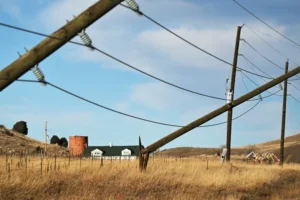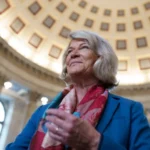WOMEN YOU SHOULD KNOW IN WYOMING: Cheyenne Social Worker Fills Mental Health Treatment Gaps
Emily Loos uses entrepreneurial spirit to help Wyomingites access counseling
- Published In: Other News & Features
- Last Updated: Dec 06, 2023
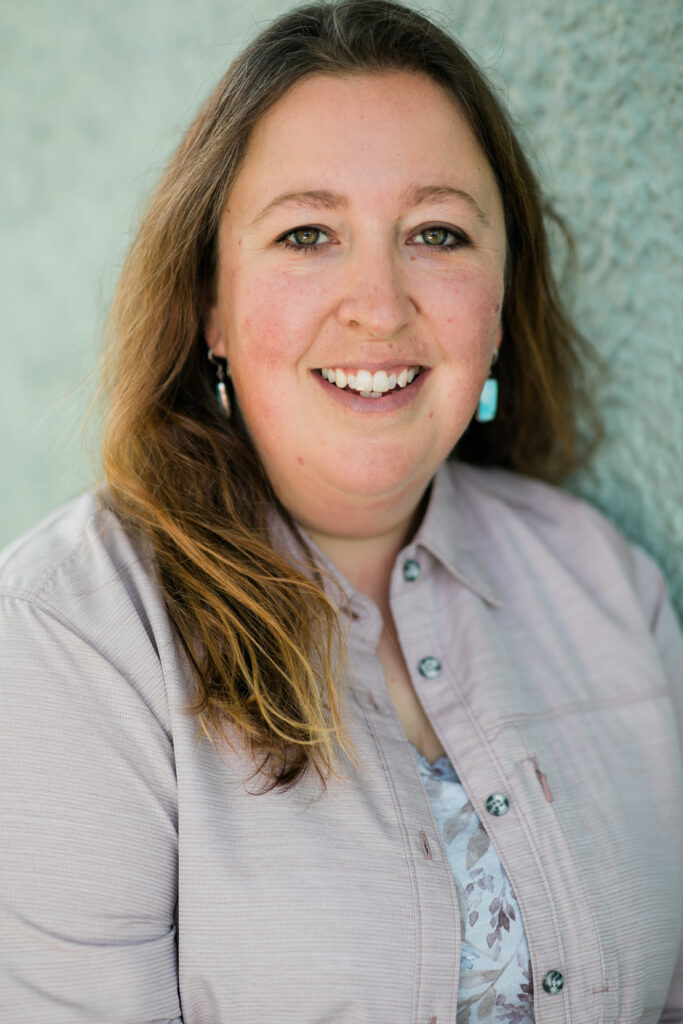
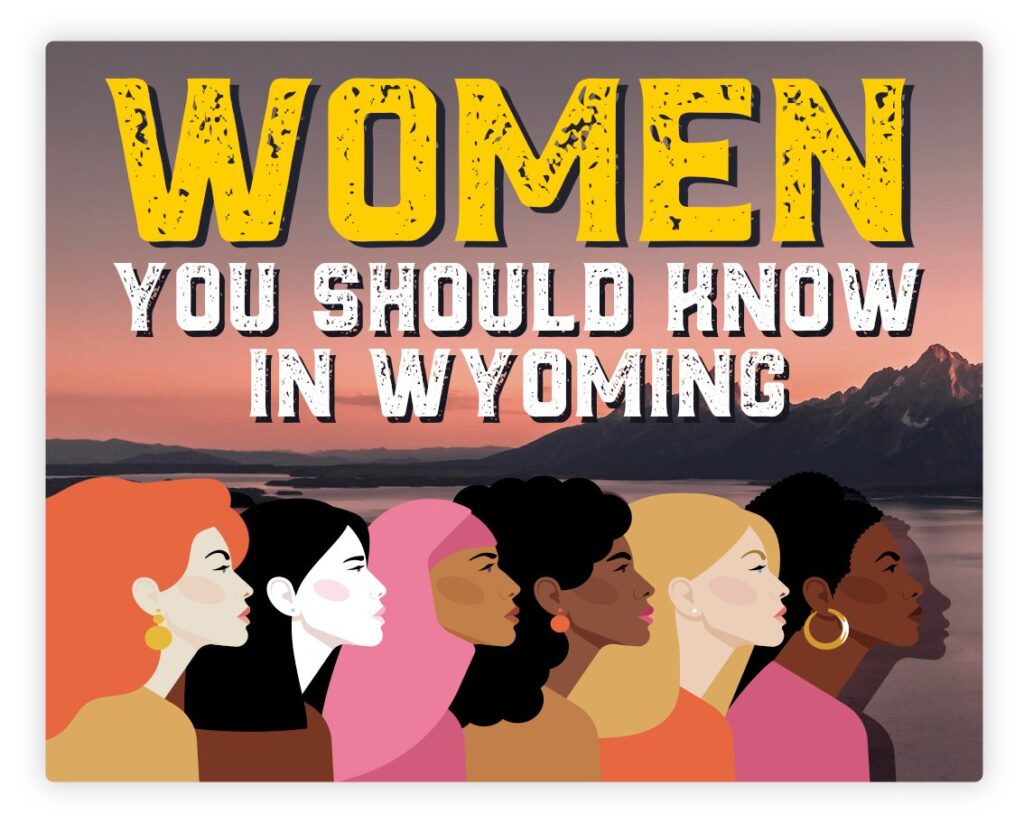
By Elizabeth Sampson
Special to the Wyoming Truth
A son who suddenly stops communicating. A daughter who is depressed. The overwhelm of an impending divorce or the loss of a job.
When people find themselves or their loved ones in a mental health crisis, but don’t know whether it warrants a trip to the emergency room or can’t wait a month for a therapy appointment, a mental health urgent care like LIV Health in Cheyenne can fill the gap.
In 2022, Emily Loos, 46, a licensed clinical social worker, came up with the idea to offer urgent mental health care services through LIV Health, a company she founded as an in-home counseling service nine years ago, after hearing a national radio news story about a psychiatrist who opened his office hours for walk-ins—and was flooded with clients all day long.
LIV Health offers same-day counseling at its Cheyenne location, and many clients access treatment when their regular therapists are on vacation or maternity leave. LIV Health does not replace the emergency room, Loos explained, noting that if someone has attempted suicide, is demonstrating bizarre behavior or has become psychotic or potentially life threatening to themselves or others, he or she should go to the hospital.
“We can’t pump stomachs or do IVs,” said Loos, chief executive officer of LIV Health. “. . . It’s not so much that we want patients to have to know, but if they come here and they need a higher level of care, we will transition them over to the hospital.”
Loos believes the clinic is the first of its kind in Wyoming and said client volume has increased steadily during the past year. As a case management business for nine years, LIV Health treated about 660 clients per month; now, the practice treats around 1,800 per month thanks to the addition of the urgent mental health care model.
At first, Loos struggled to convince her team that the new approach would work and they wouldn’t go broke.
“Everyone was like, ‘This is a terrible idea,’” Loos recalled, laughing. “. . . We had no data to go on—it was a wing and a prayer kind of thing.”
Bailey Riegel, director of community services at LIV Health, said Loos’ desire to seek creative ways to fill service gaps has driven the clinic’s rapid success.
“She’s just such a positive person and is so caring,” Riegel said, who has worked with Loos for seven years. “She’s such a dreamer. We’ve been able to reach so many more people in our community.”
A new approach
Loos grew up in a small town in western New York and headed to California after high school graduation.
“It was just such a change—lots of diversity, lots of ideas,” she said of her time on the West Coast. “That’s what propelled me. I love working with people… I loved hearing all the different challenges and journeys people went through.”
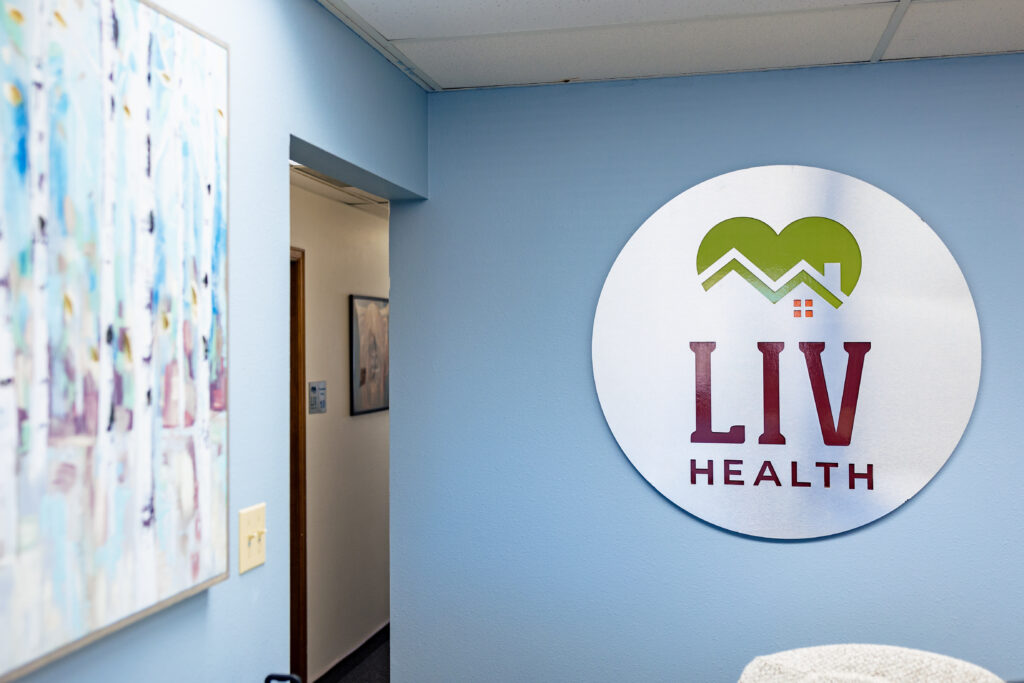
Early in her career, Loos counseled people with substance abuse issues in Colorado before moving to Cheyenne for an internship at the Veterans Affairs Medical Center. She worked mostly as a case manager on the VA’s medical floor, where she noticed many patients had a high rate of hospital readmission.
“A lot of people would transition off the hospital floor but not have a lot of their basic needs met,” said Loos, who earned a bachelor’s degree in psychology from College of the Southwest in New Mexico and a master’s degree in social work from Colorado State University. “They couldn’t get food. Their home health care we set up never got started.”
In 2014, Loos, then a new mother seeking a more flexible work schedule, launched LIV Health to provide in-home counseling to elderly patients and case management services to enable them to remain in their homes as they age.
“It’s not just health care needs,” Loos said. “It could be financial needs, food insecurities, housing insecurities. What do people need to be successful, to be safe, to be able to do what they want to do? … [Normally that] is to live at home for as long as they can.”
Loos brought in other therapists as her client base expanded to include families and children. Today, LIV Health has nearly 50 employees, including case managers, psychiatric nurses, a physician who serves as medical director and clinical assistants for lab work. Therapists see clients in their homes in Cheyenne, Laramie and northern Colorado; Loos plans to open a second urgent care location in northern Colorado in 2024.
Approximately 17% of LIV Health’s clients are 5 to 17-year-olds—a far higher percentage than Loos originally anticipated. She attributes that, in part, to less stigma about seeking counseling thanks to younger celebrities, like actress Selena Gomez and Olympic gymnast Simone Biles, who have been candid about their own mental health challenges.
“People talk about it more openly and talk about it in a way that it is no big deal, that people struggle sometimes,” Loos said.
Loos also believes the rise in social media use, which limits face-to-face communication, is driving the need for therapy.
“A lot of teenagers are communicating over text message, and those can be interpreted differently,” she said. “You see them on their phones, instead of looking up and talking. You need eye contact; you need facial expressions. That’s how you see empathy and express empathy. It’s not the same when you do it through a phone.”
Wyoming consistently ranks at the top of national suicide rates—and the epidemic is not limited to adults. Earlier this year, two Thermopolis teens committed suicide and a boy hanged himself in the bathroom at Carpenter Elementary School.
“We have had a number of young kids coming in just feeling incredibly hopeless and lost and sad to the point of wanting to take their lives at 11 years old,” Loos said. “That’s the thing for us that’s been the most powerful and impactful—to be able to help them.”
A mental health urgent care like LIV Health can play a role in helping youth and teens in crisis, experts say.
“Specific to mental health, I believe it’s vitally important that the quicker you can get people in and provide adequate treatment, the quicker you can de-escalate a potentially bad situation from progressing,” said Ben Kifer, administrator of the mental health and substance abuse section of the Wyoming Department of Health. “Providers can significantly reduce potential suicide attempts through better access to care.”


